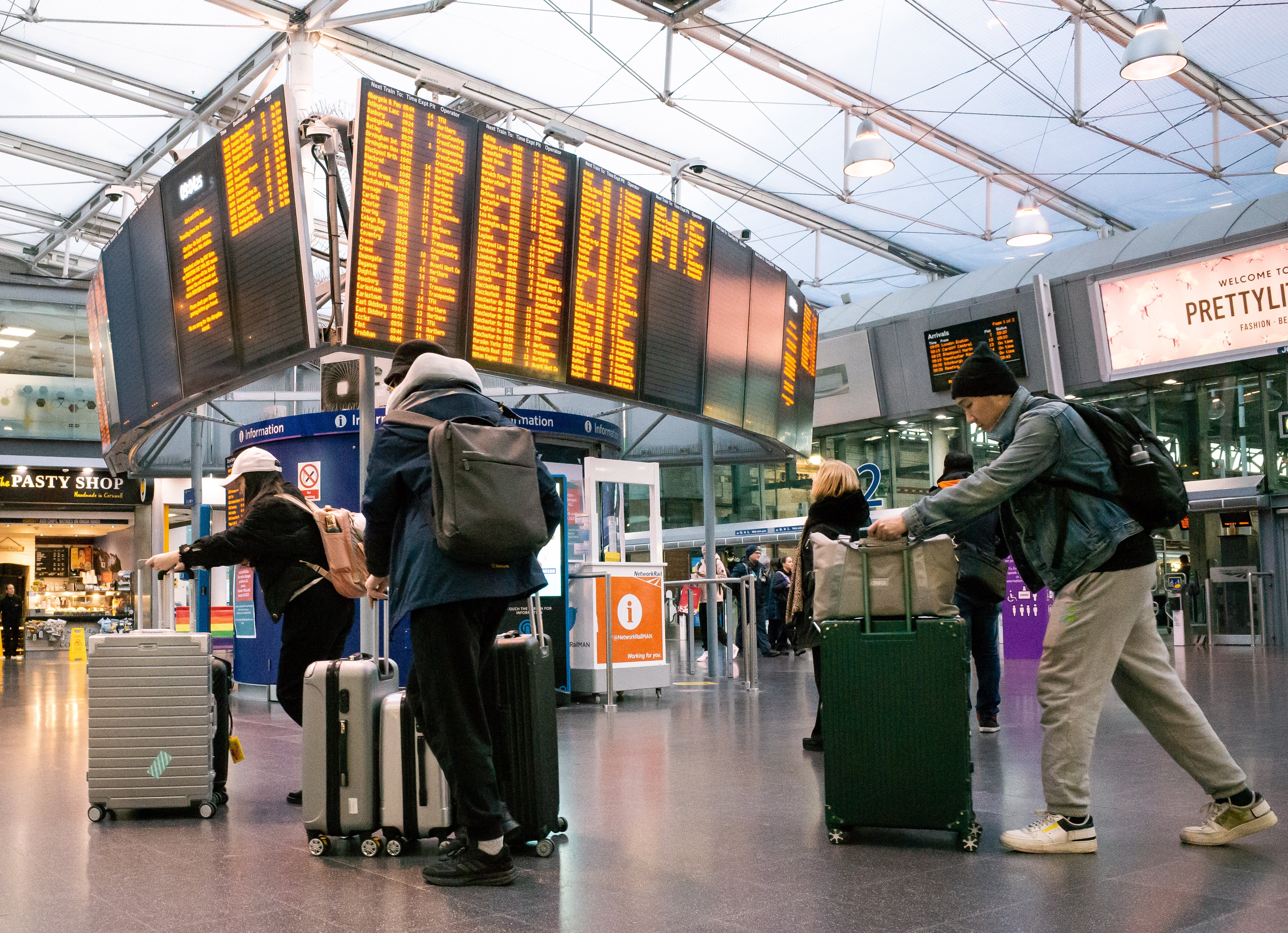Manchester Piccadilly station cancels all trains on Sunday
Rail replacement bus services will be in place instead

Your support helps us to tell the story
From reproductive rights to climate change to Big Tech, The Independent is on the ground when the story is developing. Whether it's investigating the financials of Elon Musk's pro-Trump PAC or producing our latest documentary, 'The A Word', which shines a light on the American women fighting for reproductive rights, we know how important it is to parse out the facts from the messaging.
At such a critical moment in US history, we need reporters on the ground. Your donation allows us to keep sending journalists to speak to both sides of the story.
The Independent is trusted by Americans across the entire political spectrum. And unlike many other quality news outlets, we choose not to lock Americans out of our reporting and analysis with paywalls. We believe quality journalism should be available to everyone, paid for by those who can afford it.
Your support makes all the difference.In another blow for rail travellers, Manchester Piccadilly station has cancelled all trains this coming Sunday (15 January).
The move is due to “engineering works” being performed on the train shed roof.
Those hoping to travel to and from Manchester’s principle train station will have to use rail replacement buses instead, or delay their journeys until Monday.
Network Rail, which owns and manages the station, thanked passengers for their patience in advance, tweeting: “On Sunday 15 January buses will replace ALL trains from Manchester Piccadilly due to engineering works on our train shed roof.
“Please allow extra time for your journey and check before you travel.
“Thank you for your patience whilst these works are undertaken.”
Manchester Piccadilly is the UK’s second busiest station outside of London, beaten only by Birmingham New Street, according to data from the Office of Rail and Road (ORR) recorded between April 2021 to March 2022.
It follows the previous week’s train strikes which brought Britain’s rail network to a virtual standstill from 3-7 January.
Ongoing disputes over pay, working conditions and job security led employees of Network Rail and 14 train operators who are members of the RMT union to strike on the 3, 4, 6 and 7 January.
Meanwhile, on 5 January, train drivers working for 15 companies who are members of the Aslef union walked out.
Only 20 per cent of trains ran on RMT strike days; on the day of the Aslef industrial action, only 10 per cent of services operated.
Talks between the unions and the Department for Transport (DfT) are ongoing, but have so far born little fruit.
RMT general secretary Mick Lynch said yesterday: “Today I want to see the government stop play-acting because the truth, written in black and white in their rail contracts, is that they’ve been in complete control of this dispute from day one.
“The Minister cannot hide behind this fairy story that he is just a facilitator.
“His government can end this dispute today by taking out the conditions they put in to torpedo a resolution and let the companies make a deal.”
Join our commenting forum
Join thought-provoking conversations, follow other Independent readers and see their replies
Comments